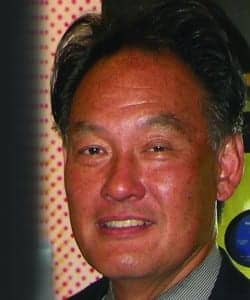April 2014 Plastic Surgery Practice
Plastic surgeon Robin T.W. Yuan, MD, seeks truth over profit
Ask Beverly Hills plastic surgeon Robin T.W. Yuan, MD, what inspired him to write Behind the Mask, Beneath the Glitter: The Deeper Truths About Safe, Smart Cosmetic Surgery, and he becomes immediately introspective.
“The main impetus was that many patients had misconceptions about what cosmetic surgery is and why they should pursue it,” he says. Patients spoke to Yuan in abstract terms such as “younger,” “better,” and “more radiant,” and requested procedures by brand name. “There is too much marketing and perhaps not enough true communication. I thought there needed to be another voice out there,” he says.
His book provides that voice, and it is a voice steeped in reason, science, and ideology.
Written in 2011, the book is perhaps even more relevant today. “The direct-to-consumer marketing is much more entrenched, there is more competition, and as a result, plastic surgery is becoming commoditized. Obamacare will likely heat things up further as more medical professionals enter the cash business of cosmetic surgery,” he says.
At its core, Yuan’s book is about the quest for truth and its role in smarter decision-making about cosmetic surgery. According to Yuan, the decision to undergo cosmetic surgery should be based on truth, not the availability and affordability of new procedures and techniques or even the number of degrees on a plastic surgeon’s wall.
Seeking to change something about one’s appearance is more about coming to terms with who the person is at heart, not only achieving a healthy glow or looking younger. Yuan believes the real question that patients must ask of themselves scratches much deeper below the surface. “The real question is, ‘What do I need to do to make me happy?’ Patients have to know the truth about themselves in the broadest sense to answer this question.”
And this often exposes real vulnerability. As Yuan writes, “The patient is searching for her own true self and, in doing so, is making a statement about how she really feels about herself. That seems deep—too deep—for plastic surgery. It is too transcendental, too self-revelatory, too New Age. Plastic surgery is supposed to be superficial and frivolous. Go in, get zapped, lifted, suctioned, injected, and ‘voilá!’ you’re glamorous, sexy, and happy! Isn’t that the truth?”
Obviously not.
While Yuan has no immediate plans to publish his next book, the topic could very well be a plastic surgeon’s role in the breast cancer treatment team. “There should be a paradigm shift in the team approach with the plastic surgeon at least on par if not at the head of the table,” he says. “Breast cancer is viewed as much as a cosmetic disease as an oncological one, and plastic surgeons are logically and historically destined for a more central and important role in guiding patients down a surgical treatment pathway,” he says.
“There should be a more complete evolution from the old days where cosmetic appearance was completely sacrificed for attempts at a cure by radical surgery or radiation to a more cosmetic goal of not necessarily preserving, but enhancing (if desired) the breast without sacrificing potential cure. The treatment options should be outlined, and then the plastic surgeon should decide with the patient as to the most optimal cosmetic plan,” he says, adding that quality of life should be as important as quantity. “Plastic surgeons are uniquely trained to project into the future what cosmetic result could be obtained by various treatment options.”
Denise Mann is the editor of Plastic Surgery Practice. She can be reached at [email protected].
Original citation for this article: Mann, D., The fountain of truth, Plastic Surgery Practice. 2014; April: 28.



